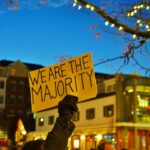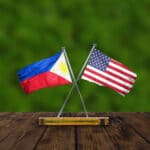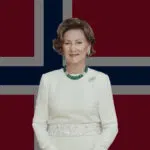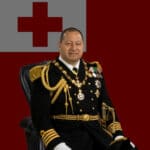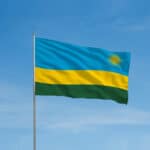Rwanda Liberation Day on July 4 is observed because it marks the end of a period under a tyrannical government and the beginning of freedom from oppression. It represents the end of a dictatorship and the start of democracy. The date is also the anniversary of the Rwandan Patriotic Front liberating the country and ending the 1994 Genocide against Tutsi. The day is known locally as ‘Kwibohora.’
History of Rwanda Liberation Day
During World War II, Rwanda remained loyal to the Belgian administration and as a result, many Rwandans were educated and trained to work in administrative capacities. However, a growing movement among the people wanted independence from their colonial rulers. In 1959, the Hutu majority revolted against the Tutsi minority and gained control of Rwanda. Hundreds of thousands of Tutsi fled to Uganda, where they began training for an invasion, intended to remove the Hutu government.In 1962, Rwanda achieved independence and made many political reforms including universal suffrage and free elections. However, violence between the Hutu majority and Tutsi minority continued. A group of Tutsis attempted to overthrow the government in 1967 but were unsuccessful. In 1973, a former army officer named Juvénal Habyarimana seized power and established a one-party state that banned political opposition.On July 4, 1994, Rwanda was liberated from the clutches of a corrupt dictatorship. After years of oppression, its first democratically elected President put an end to the genocide that had been plaguing the country since the early 1990s. Since the creation of a new government, the country has seen many changes including economic growth.
Rwanda Liberation Day timeline
The Hutu majority revolts against the Tutsi minority and gains control of Rwanda, forcing hundreds of thousands of Tutsis to flee to Uganda, where they begin training for an invasion to remove the Hutu government.
Rwanda achieves independence and makes many political reforms including universal suffrage and free elections.
A former army officer named Juvénal Habyarimana seizes power and establishes a one-party state that bans political opposition.
Rwanda is set free from the clutches of a corrupt dictatorship. After years of oppression, it can elect its first democratically elected President and put an end to the genocide that had been plaguing it since the early 1990s.
Rwanda Liberation Day FAQs
What is Rwanda best known for?
Rwanda, a landlocked Central African country, lies along the Equator between Burundi and Tanzania. With breathtaking scenery, Rwanda is often referred to as ‘le pays des mille collines’, French for ‘land of a thousand hills.’ Kigali, the capital city and largest metropolis, is located in the center of the country on the Ruganwa River.
Do they speak English in Rwanda?
Rwanda is a multicultural country where you will hear Kinyarwanda, French, and English being spoken.
What is Rwanda's main source of income?
Rwanda has few natural resources and its economy is based mostly on small-scale agriculture. An estimated 90% of the working population farms, where agriculture comprised an estimated 42.0% of GDP in 2010.
How to Observe Rwanda Liberation Day
-
Perform the ‘Kabanga’ dance
The dance starts with two rows of dancers standing opposite each other. They start dancing slowly, but their movements increase in pace as the dance continues. Dancers also clap their hands and sing songs that praise their country or loved ones.
-
Read the speech given by Paul Kagame
Try to imagine the euphoria as Kagame’s speech is read on July 4, 1994, after the liberation of Rwanda. If you need an inspiring read, this is it.
-
Have a Party
Have a dinner party with family and friends. Enjoy your meal and company in celebration of the people of Rwanda.
5 Interesting Facts About Rwanda
-
Plastic bags are banned
Upon entering the country, a customs officer will check your luggage and ask you to remove any plastic bags that you might have in them.
-
Rwanda has four official languages
Rwanda's official languages are French, English, Kinyarwanda, and Kiswahili.
-
Most densely populated country in Africa
The average population in Rwanda is around 525 people per square kilometer.
-
‘The Land of a Thousand Hills’
Rwanda is mountainous and the average elevation of the country is 0.621 miles.
-
The highest percentage of women in parliament
With over 60% of its parliament members being female, Rwanda has the highest percentage of women in parliament in the world.
Why Rwanda Liberation Day is Important
-
It honors those who died
It honors those who died during the 1994 genocide against the Tutsis. The day is observed with ethnic reconciliation ceremonies, parades, public performances, and musical concerts.
-
It represents hope
The day commemorates Rwanda’s liberation and the restoration of peace in the country as having gone through a civil war. It reminds us that hope is never lost.
-
It prepares us for a bright future
Liberation Day builds awareness and teaches lessons that prevent history from being repeated. As long as we remember the failures of the past, we are not doomed as a society to make the same mistakes.
Rwanda Liberation Day dates
| Year | Date | Day |
|---|---|---|
| 2023 | July 4 | Tuesday |
| 2024 | July 4 | Thursday |
| 2025 | July 4 | Friday |
| 2026 | July 4 | Saturday |
| 2027 | July 4 | Sunday |




